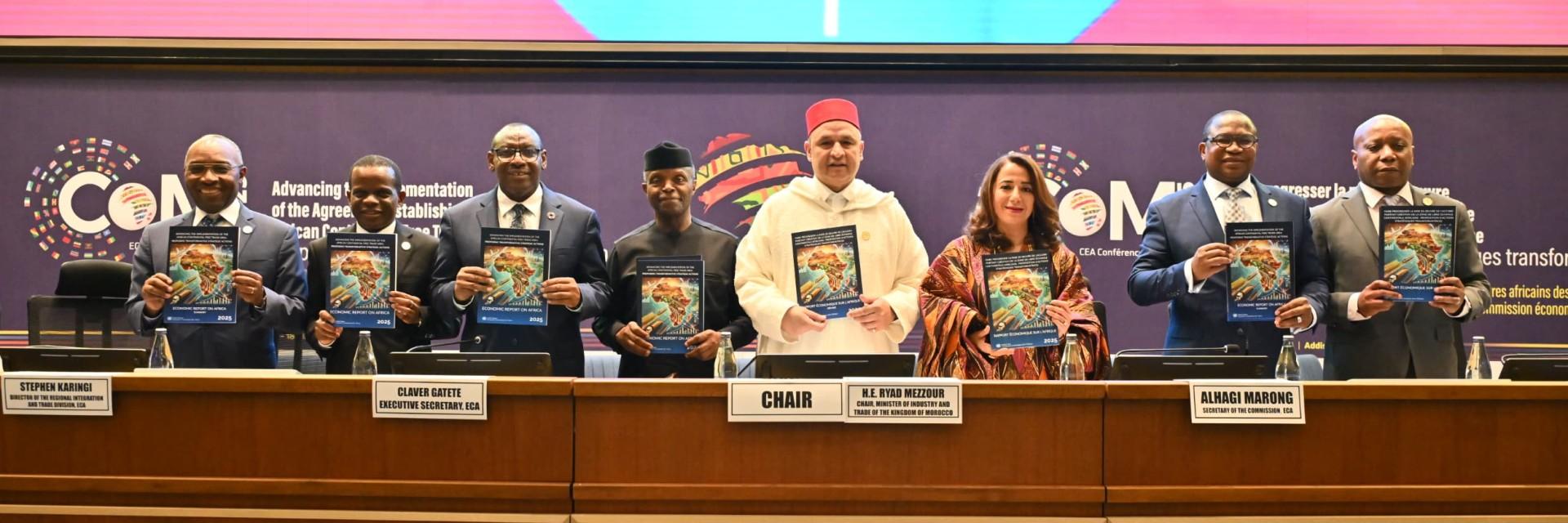Addis Ababa, 17 March 2025 (ECA) - Africa stands at a critical juncture in its development, with immense potential driven by a youthful population, rich natural resources, and expanding consumer markets, says the ECA’s Economic Report on Africa 2025. However, while economic growth has rebounded post-pandemic, it remains below pre-pandemic levels, limiting progress toward the Sustainable Development Goals (SDGs).
The report examines the African Continental Free Trade Area and its transformative opportunity to accelerate trade-led integration and drive inclusive, sustainable development.
“With the AfCFTA, we have the potential to boost intra-African trade by 45%. While the benefits will be broadly shared across sectors, agri-business and industry are set to benefit the most,” said Hanan Morsy, ECA’s deputy executive secretary and chief economist, in a presentation on the key highlights of the report at COM2025.
“This presents an opportunity to focus on high-value-addition sectors and advance regional value chains.”
She noted that AfCFTA provided an opportunity to stimulate intra-African trade flows in some sectors where Africa already has a competitive advantage such as fertilizer production.
“Between 2019 and 2023, Africa exported almost $10bn worth of fertilizers outside of the continent annually, while importing $3.7bn worth of fertilizer from other regions. This shows we have huge opportunities to deepen that, even with the existing patterns of production,” she said.
The ERA found that intra-African trade is currently dominated by manufacturing, accounting for 46% of exports, followed by food (21%), fuels (20%) and ore and metals (7%). The anticipated 45% increase in intra-African exports by 2045 will boost the value of the continent’s cross-border trade by $275.7bn.
AfCFTA implementation can also accelerate Africa’s energy transition, with an estimated $22.4bn of cumulative investments required in electricity generation, transmission, and distribution infrastructure between 2025 and 2040. About 80% of this will go into renewables.
However, realising the agreement’s full benefits requires strategic investment, well-designed policies, and synchronized reforms at all levels of government.
Issued by:
Communications Section
Economic Commission for Africa
PO Box 3001
Addis Ababa
Ethiopia
Tel: +251 11 551 5826
E-mail: eca-info@un.org

